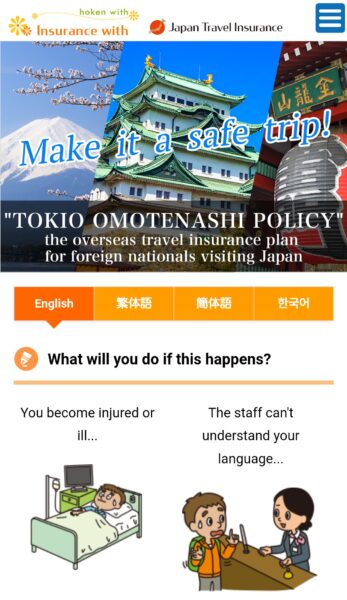Some cases of medical expenses of 10 million yen for treatment of bone fractures. Travel insurance required for travel to Japan.
A news story is making headlines: “A traveler from Vietnam was seriously injured while traveling to Japan and incurred medical expenses as high as 10 million yen because he had not purchased insurance”.
During travel, people can become ill or injured in unusual environments.
On December 19, 2024, Japanese media reported that a 69-year-old Vietnamese woman slipped on the stairs and broke her right leg while traveling in Japan, and was quoted a total of 10 million yen for surgery and subsequent 30-day hospitalization.
【Chunichi Shimbun (Japanese newspaper)】
10 million yen for a broken leg?! 30% of inbound tourists don’t have travel insurance, leading to unexpectedly high bills
The level of medical care in Japan is among the highest in the world, with high standard medical care available in both urban and rural areas.
While the latest medical equipment is available and safe and appropriate treatment is available, medical care is not inexpensive.
If you need hospitalization or surgery for a broken bone or acute myocardial infarction, or if you are medically transported to your home country accompanied by a doctor, you can expect to spend several hundred to several tens of millions of yen.
Some hospitals do not support cashless payment.
In general, medical fees are paid after consultation and treatment at Japanese hospitals, but foreigners may be charged a deposit (advance payment) for medical expenses.
The ratio of cashless payment in Japan is lower than in other countries, and many medical institutions do not accept credit card payments.
This is true not only for small clinics and clinics, but also for medium-sized hospitals such as municipal hospitals.
It is important to confirm the method of payment for medical treatment before you visit a hospital, as you may be required to pay for expensive medical expenses in cash if you do not have insurance.
Many hospitals do not offer English-language services.
One of the difficulties in visiting a Japanese hospital is the language barrier.
There are only a limited number of doctors and medical staff who can speak English, and it is not uncommon to find clinics that only offer Japanese language services.
This makes it difficult to provide accurate explanations of symptoms in emergency situations or when complex treatment is required, and there is a risk that appropriate treatment may be delayed.
The Japan National Tourism Organization (JNTO) has a database that allows you to search for hospitals that offer services in English, Spanish, and other languages.
It is important to have travel insurance.
It is important to have overseas travel insurance to prepare for such sudden injuries and illnesses in Japan.
If you have overseas travel insurance, you will be covered even if your medical expenses become expensive.
When purchasing overseas travel insurance, it is also important to check what kind of services are provided.
If the insurance policy supports cashless treatment services, medical expenses are paid directly from the insurance company to the medical institution, and the patient can receive treatment without having to pay for it at the counter.
Also, if medical interpretation services are provided, you can request an interpreter by phone or other means, so you do not have to worry even if the hospital in Japan does not support your language.
Overseas travel insurance that can be purchased after entering Japan
In Japan, an overseas travel insurance policy is offered to foreigners visiting Japan without insurance coverage, which can be purchased after entry.
”TOKIO OMOTENASHI POLICY” offered by Tokio Marine & Nichido Fire Insurance Company can be purchased within 5 days of entry to Japan, and coverage begins the day after application is made.
The policy covers outpatient treatment, medicine, hospitalization, and surgery costs, as well as medical transportation costs to the home country if necessary.
The maximum coverage is 10 million yen, and the premium is relatively inexpensive at 2,960 yen for a 7-day stay.
Cashless treatment services are also available, with treatment and drug costs paid directly to the hospital or pharmacy by the insurance company.
In addition, interpretation services are provided in English, Chinese, and Korean, and telephone and other support services are available during medical examinations.
The application process can be completed online, and no documents are required.
Be sure to purchase travel insurance to prepare for expensive medical expenses in the event of an emergency.

 Japan Travel Insurance「TOKIO OMOTENASHI POLICY」
Japan Travel Insurance「TOKIO OMOTENASHI POLICY」